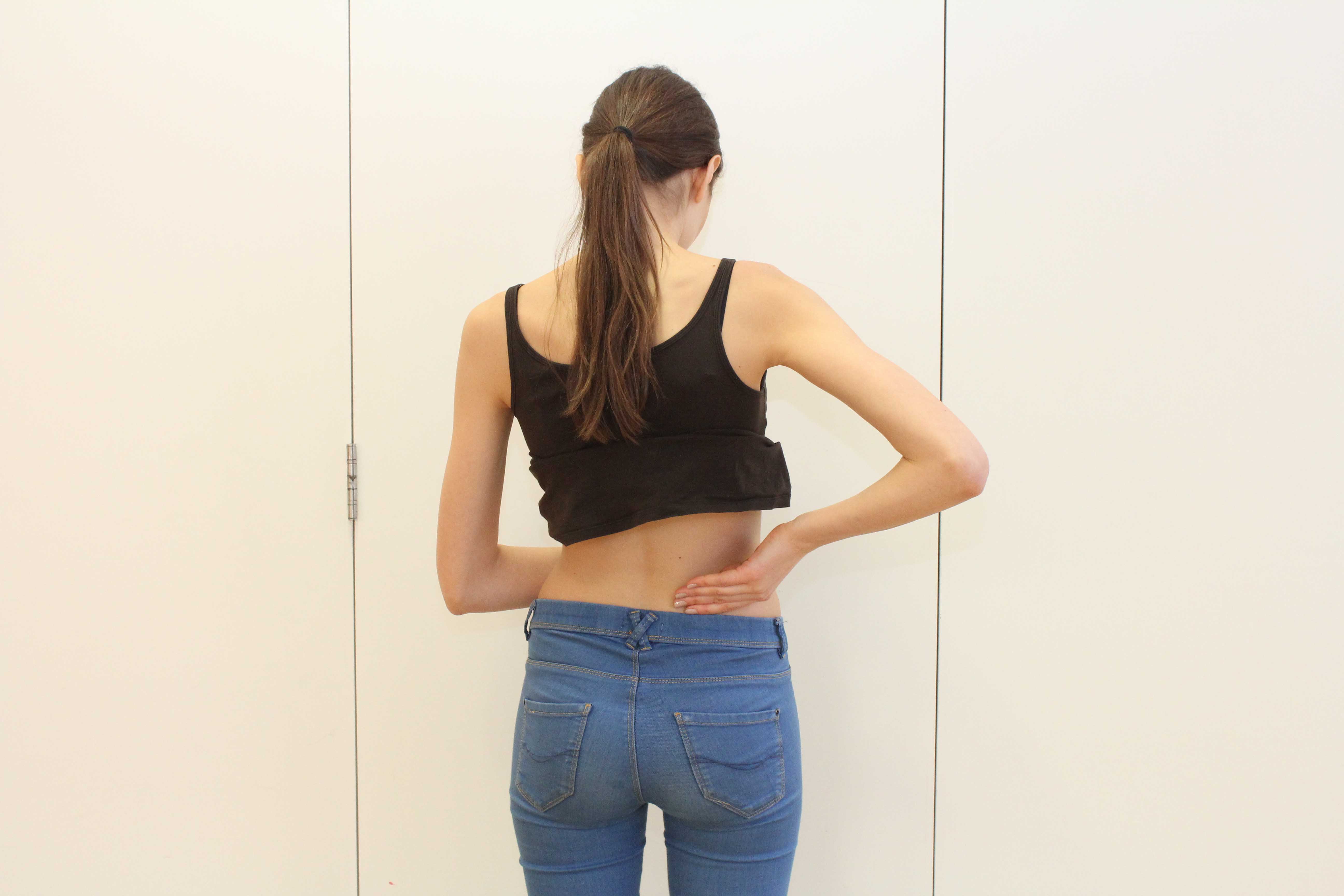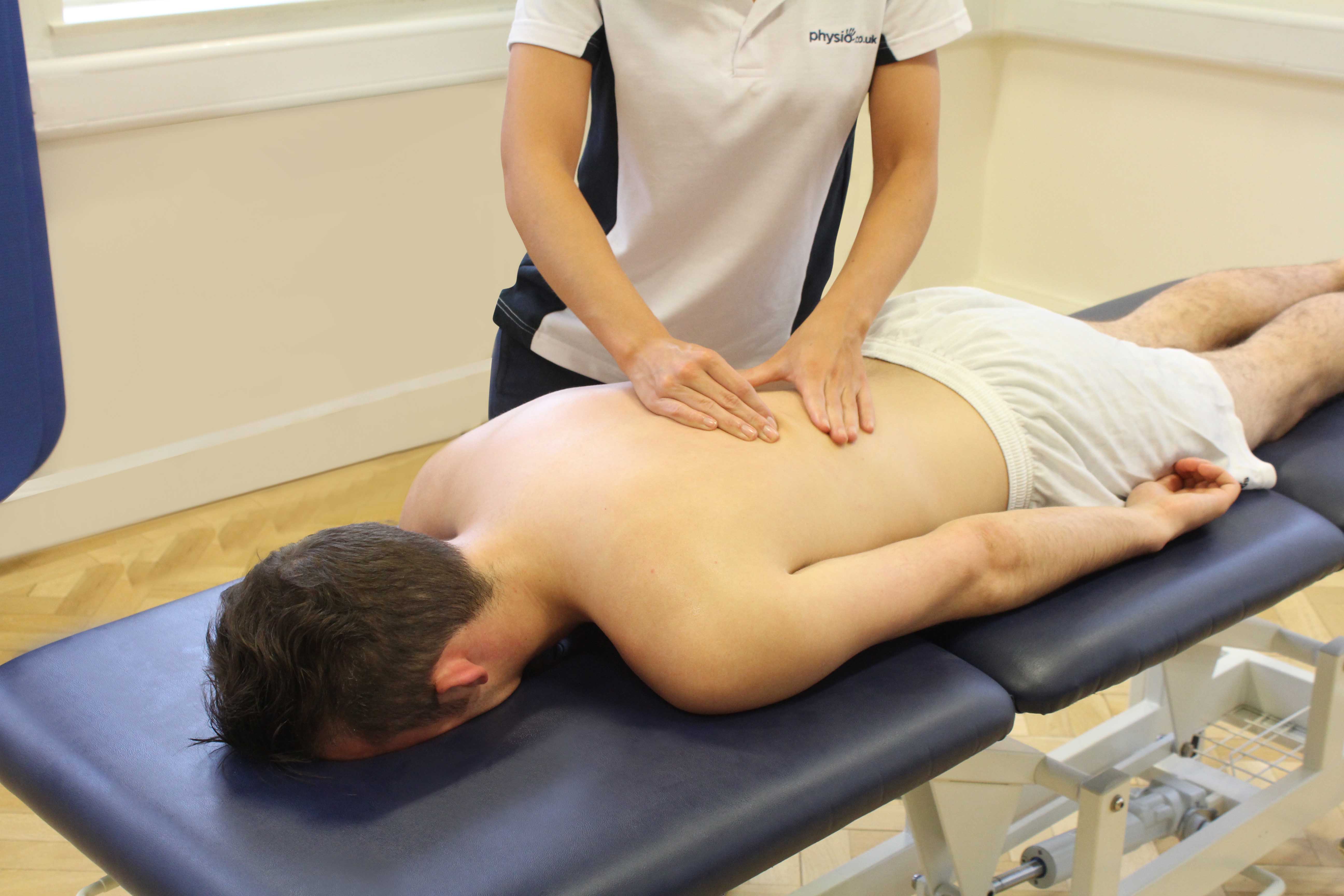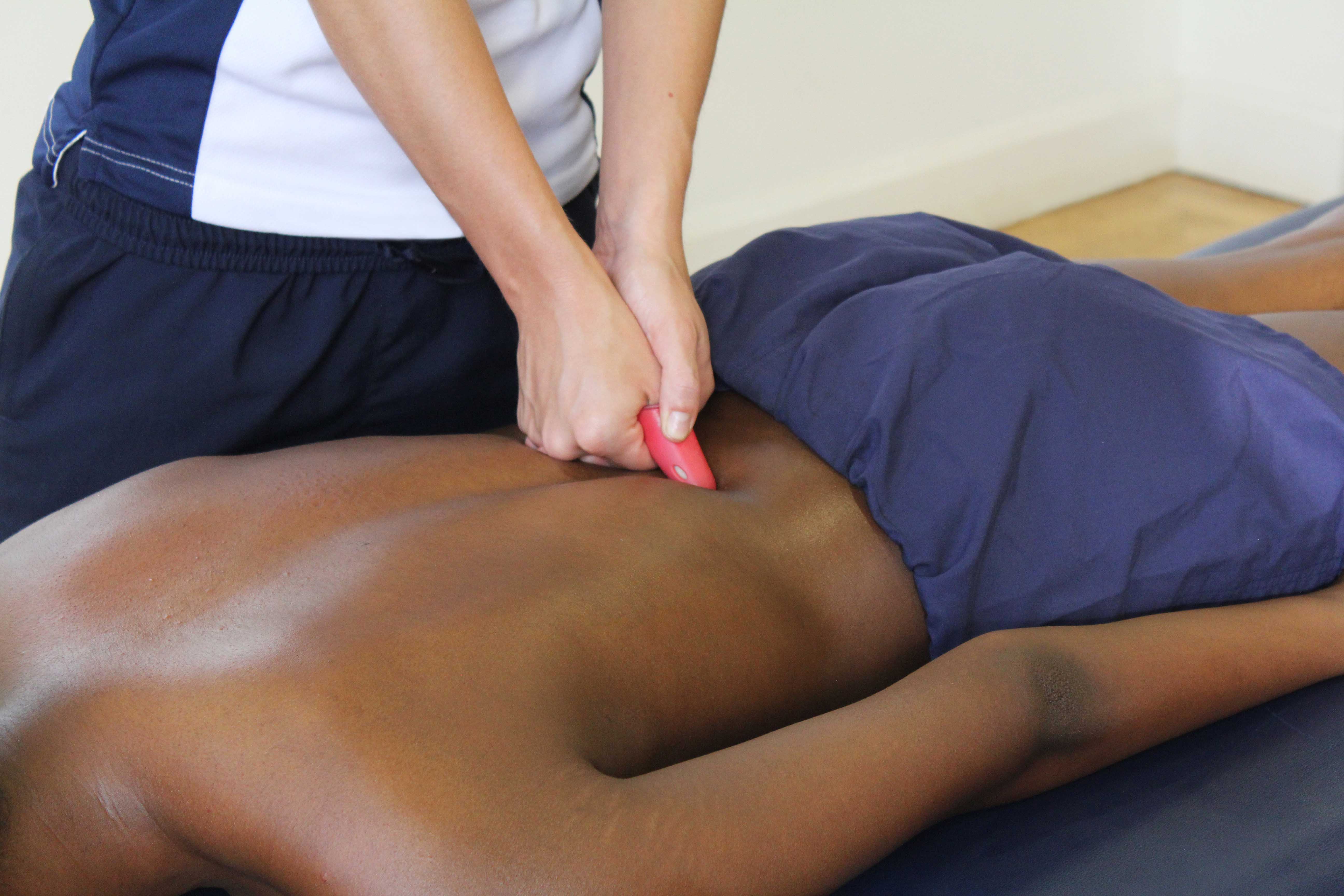Lumbar Fixation and Fusion
Lumbar spine fixation is a surgical procedure performed to restrict movement of the spine due to excessive instability. A restriction in vertebral movement reduces pain produced by irritation of surrounding soft tissues and structures. Lumbar fixation involves insertion of screws and rods, and growth of a bony bridge provides spinal fusion.
 Above: Back pain caused by impairment of the lumbar discs or vertebrea
Above: Back pain caused by impairment of the lumbar discs or vertebreaLumbar Fixation and Fusion Indications
Lumbar fixation is indicated when there is excessive instability of the spine, causing pain on many activities of daily living.
This may be due to the following:
- Degeneration of the spine
- Trauma
- Cancer
 Above: Mobilisations of the vertebrea in the lower back
Above: Mobilisations of the vertebrea in the lower backInvestigations such as an x-ray or MRI scan can confirm the cause of the instability following physical examination. Conservative management is the primary treatment of instability including strengthening of the core and lower back muscles to increase control around the spine in order to compensate for the instability. If conservative management fails or significant instability remains, surgery is indicated to fix or fuse the spine is indicated.
Lumbar Fixationand Fusion Procedure
The lumbar fixation and fusion surgical procedure is usually performed under general anaesthetic.
The procedure involves the following stages:
- An incision is made over the area of vertebral instability and the spinal segments are exposed.
- Sometimes removal of the posterior arch of the vertebrae (lumbar laminectomy) is needed to decompress the nerves.
- The bone for the fusion is taken from the iliac crest.
- The site for the pedicle screws is identified and screws inserted accurately.
- The bone is transplanted across the unstable vertebral segments.
- The screws are connected with metallic rods to provide the fixed stability.
- The operated site is then closed in multiple layers.
 Above: Trigger point massage of the muscle and connective tissue in the lower back
Above: Trigger point massage of the muscle and connective tissue in the lower backThe Benefits Post-Surgery
There are many benefits following lumbar fixation and fusion.
Benefits of lumbar fixation and fusion include:
- Stability of the previously unstable spinal segments
- Reduced lower back pain
- An increase in function
- Improved wellbeing
- Greater quality of life
Physiotherapy Rehabilitation Post-Surgery
Following lumbar fixation and fusion surgery, you will be encouraged to mobilise in hospital the day after surgery and physiotherapy will begin.
Physiotherapy rehabilitation post-lumbar fixation and fusion surgery will include:
- Mobility
Ambulation is the only activity advised for 4-6 weeks following surgery. - Range of movement exercises
At a later date you will begin gentle range of movement exercises to mobilise structures surrounding the spinal fusion to regain spinal movement. - Stretching
Gentle stretching is important for decreasing stiffness of the spine and tightness of surrounding muscles. - Core strengthening exercises
You will be taught core strengthening exercises by your physiotherapist to further increase spinal stability.

 0330 088 7800
0330 088 7800


































